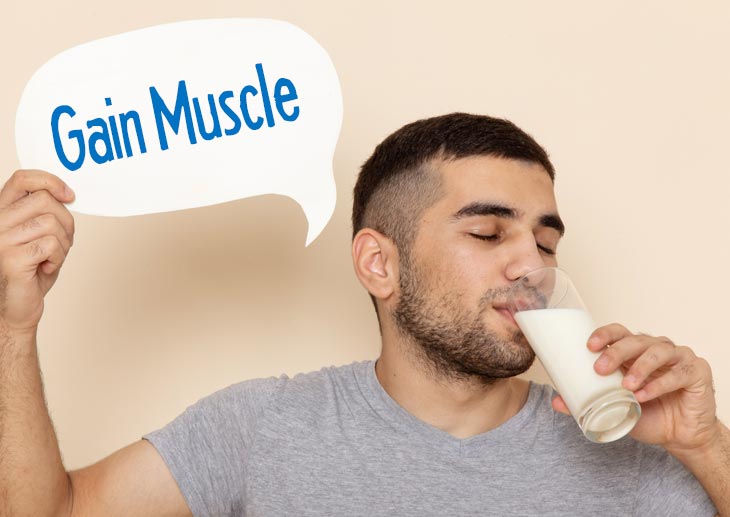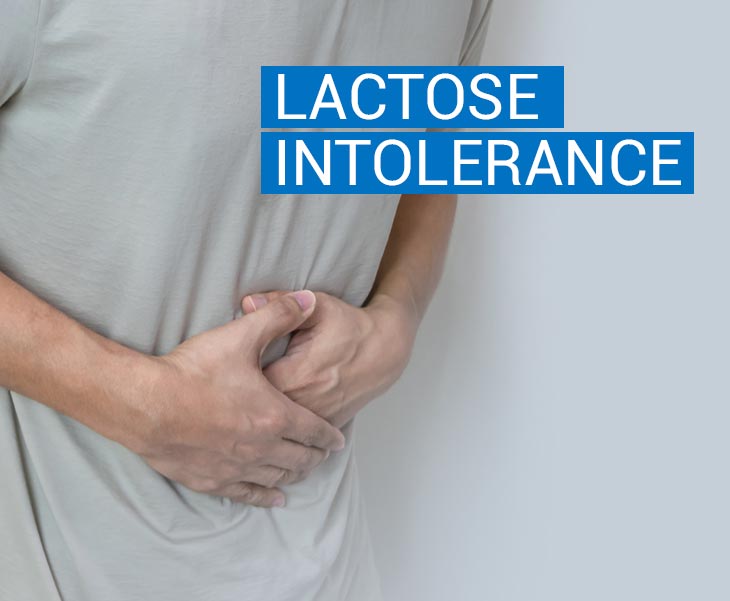The debate on whether dairy is good or bad for you never seems to end. Well, we’ve also decided to take part in this conversation. There are a lot of different beliefs surrounding this topic. However, many of them aren’t based on some substantial scientific evidence but rather on the personal preferences and health differences of each human being.
In this article, we will highlight all the benefits of dairy as well as the negative impacts it might have on your health and beauty.

Is dairy good or bad?
Here’s a quick answer: If you’re not lactose-intolerant, dairy is good for you. Even if you are, though, there is an abundance of lactose-free dairy to be found. You can also get lactase (an enzyme that basically eats lactose sugar) at a pharmacy. Just take it before consuming dairy and you’re good to go.
If you’re one of the lucky people without lactose intolerance, dairy can have a positive impact both on your health and looks. It improves your bone density and gut health. It can strengthen your nails and hair and improve your complexion as well.

Of course, everything is only good in moderation. The Dietary Guidelines for Americans encourage people to consume three servings of dairy daily. That’s how much milk you should drink a day. But if you drink more of it, you might encounter negative consequences. So chugging milk without consideration won’t help you become healthier—especially considering that our bodies can only digest so many nutrients and vitamins. The excess will just leave the system naturally. In the worst-case scenario, you might get nutrient and vitamin overdose symptoms.
Now, let’s take a look at all the benefits and possible risks in detail.
Dairy and health
In this section, we will take a look at the health benefits of milk and dairy as well as their drawbacks.

Health benefits of dairy
Dairy has many benefits. If you were wondering whether milk and cheese have protein, the answer is yes, they do. Quite a lot of it. So if you’re trying to gain muscle without going over your calorie limit, dairy is a great option. There are just 90-150 calories in a cup of milk, and you can check the calorie value of your favorite yogurts, cheeses and other dairy products for more information.

Another good thing about dairy is the high amount of vitamins and micronutrients it contains. The most significant ones are vitamins B12, B7, B2, magnesium and, of course, calcium. The latter is very important for keeping our bodies running well and improving bone density. It’s especially vital for women to consume enough calcium, as they keep building their bones up until menopause. So it’s good to keep that bone-building going in order to be ready for menopause. Pregnancy can have a negative impact on bone density too.

Dairy can also reduce the risk of heart disease and stroke thanks to the fatty acids it contains. However, if you already have issues with your cardiovascular system, you should talk to your doctor about your dairy intake.
Casein and the whey proteins found in dairy improve the mineral absorption of our bodies and serve as anti-inflammatory and anti-oxidative remedies. This can benefit both the health and condition of your skin.

Fermented dairy has an even more positive impact on our health thanks to the bacteria it contains. It can help with gut health and improve digestion. Honestly, we’ve tested this on ourselves and can say with confidence that even a cup of good yogurt or kefir makes your gut work much better.
Finally, dairy helps to repair muscle. It benefits post-exercise muscle synthesis and re-hydrates our muscles, thus bringing us more results from our workouts and making that post-workout soreness lighter and faster to go away.
Read our guide to healthy breakfasts with dairy: https://milkyday.com/blog/2019/03/14/how-to-reinvent-a-healthy-breakfast-with-dairy-processors/
Health risks of dairy
We’ve already mentioned that if you have some issues with your cardiovascular system, you should talk to your doctor about whether you should consume dairy and what kinds of it you should focus on.

One of the biggest issues with milk—especially if you get it from unreliable sources—is that it might be contaminated with hormones, antibiotics and pesticides. Thanks to the latest regulations, dairy producers are now more careful with such things, so the amount of contaminated milk is much lower. However, if you get dairy from a local farm, inform yourself about its approach.
You should be careful with dairy paired with sugar and processed products. When we consume dairy, our bodies begin to break down the protein it contains and turn it into something similar to insulin hormones. Mix that with sugary and processed foods, and you’ll get an even higher level of insulin, as your body will try to deal with the sugar levels. A high level of insulin leads to inflammation that will disrupt your health and affect your skin. That’s why you should be careful with all those fruity yogurts, ice cream and other dairy mixed with sugar.
Here’s how to reduce the amount of sugar in your dairy: https://milkyday.com/blog/2019/02/25/how-to-reduce-the-amount-of-sugar-and-fat-in-frozen-dairy-desserts/

Then there’s lactose intolerance. If you feel unwell after consuming dairy, get bloated and gassy, and your bowel movements become irregular, you might be intolerant to lactose. As we’ve already said, try lactose-free dairy or the lactase enzyme. With that said, not all dairy products will make you feel bad—even if they contain lactose. Many people wonder, “Does yogurt have lactose?” The majority of fermented dairy products do not have large concentrations of the lactose. Greek yogurt, for example, contains very little lactose if made correctly. But you can’t really be sure if it was made correctly.
You can make your own fermented dairy at home using lactose-eating bacteria and our milk pasteurizers. This way, you will know for sure your dairy is safe to consume. Check out our range of milk pasteurizers and pick the one that fits your needs. If you’re struggling to identify which one is right for you, just drop us a line and we will help you.
Can you gain weight by consuming dairy?

Dairy is fairly low in calories, so if you consume it in moderation, you won’t gain weight just from that. Remember that we gain weight when we continuously consume more calories than we spend. If dairy becomes a part of your healthy diet that stays within your calorie needs, you will not gain weight. Moreover, you might even lose a bit, as dairy improves digestion and thus has a positive impact on your metabolism.

Dairy and beauty
We’ve mentioned that the vitamins and micronutrients in dairy improve the condition of our nails and hair. They can have a good impact on our skin as well. While there is a belief that dairy causes acne and skin inflammation, research is still ongoing on this topic. Dairy contains retinol and vitamin D, which are among the most popular anti-aging and anti-inflammatory remedies. Calcium, potassium, chlorides, sodium, magnesium, phosphor and other trace elements in dairy help to speed up cell regeneration, and the vitamins in dairy keep our skin moisturized and improve our complexion.

On the other hand, everyone’s body is different, and you should try staying off dairy for a while if you struggle with skin issues. If it helps, then not consuming dairy is right for you. If it doesn’t, then there is a problem with something else. If it helps, then dairy likely raises your insulin-like growth factor-1. Some studies show that people who struggle with acne tend to have an increased level of this hormone. Keep in mind that you should also be careful with mixing dairy and sugar. Increased levels of insulin can cause inflammation, and sooner or later, that will manifest itself as skin issues.
Interestingly enough, skimmed milk usually causes more skin issues than whole milk. Maybe that’s because of those fatty acids we were talking about in the health section. We have detailed articles about skimmed milk and whether it’s better than full-fat milk.
Dairy is mostly beneficial for both our health and beauty, so enjoy it if you don’t have any issues that come from consuming it.